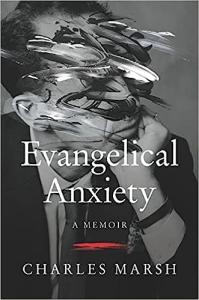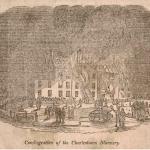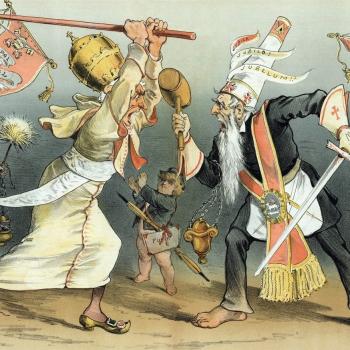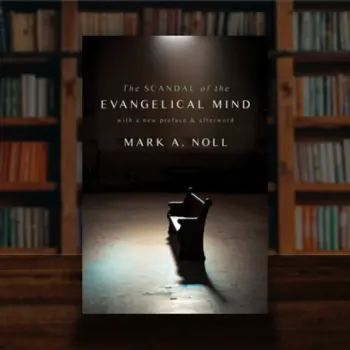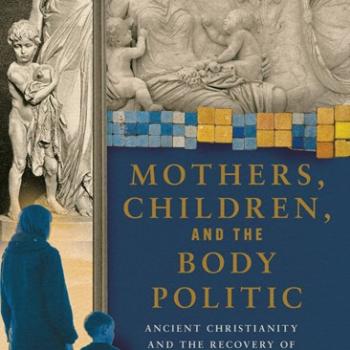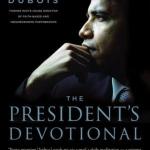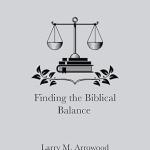It has been just over a year since Charles Marsh’s memoir Evangelical Anxiety was published. And while there have been positive reviews in Rolling Stone and Christian Century, this imaginative, important book warrants more conversation within evangelicalism. Perhaps it got a bit lost in the spate of evangelical memoirs of the last few years, from exvangelicals and almost exvangelicals to fundamentalists to Beth Moore herself.
But this one is different.
Combining staggeringly personal disclosure with a critique of evangelicalism’s relationship to and effect on psychology with theological reflections on grace, the book is neither an exit missive nor a defense. It is, at its core the story of a life, of a body and mind and soul. After a “nervous breakdown” as a Divinity School student and episodes of depression and anxiety which lingered despite praying and begging and bargaining with God, despite confession and “self-abasement” (shocking), Marsh goes to therapy. “My prayers for healing,” he writes, “were answered in the form of a balding Jewish analyst and MD who offered an excellent sliding scale.” And with him, over many years, he narrates his life and memories, finding ultimately that he is not ruinous but beloved and that “[psycho]analysis and faith traverse similar terrain—they understand how language and narrative heal.” It turns out that he “was not a freak,” his suffering not fatal, not total, not even that unusual. This was, for Marsh, a profound spiritual experience: “The language of the therapeutic hour felt like prayer reciprocated.” But this is not a memoir that commends therapy rather than Christianity, but one that shows that evangelicalism’s old tools—shame, denial, demonic possession—don’t always work. It is Luther’s bold grace that is needed, a deeper assurance that the Center will hold, that our wounds and fears, our heavy hopes and unreliable bodies, may lead us off but also back again. Ultimately, Evangelical Anxiety is a complex and compelling book– for many reasons.
First, Charles (who, I should say here, is a friend) is fabulous writer. By turns poetic and irreverent, always brilliant, often funny, the prose is vivid and visceral, pulling you in deeper and deeper. You’re there when he stumbled over his words at an Atlanta debutant party or “single handedly destroyed the story of Christmas” at a pageant, which means you’re there too in the Harvard dorm in November of 1981 room as anxiety closes in, you’re in Laurel, Mississippi in the 1960s trying to sleep as the Klan marauds around, you’re in Baltimore, an Assistant Professor racing to get to the psychoanalyst’s Eames chair.
For as intense as the subject matter is, it’s also funny, if sometimes in a dark way. Marsh quips about bodies (even crassly), about useless things purchased online; he manages to make an anecdote about corporal punishment humorous if still horrifying. Reflecting on Oswald Chambers’ devotional, he observes: “Stripping the gospel of all joy takes a certain gift.” As a person who was gifted no fewer than five copies of My Utmost for His Highest upon graduating from high school, I guffawed when I read the line. Indeed.
Marsh also has a gift with quotes. Interspersed with a memory about a man praying for Jerry Garcia or a lorazepam sacrament appear thoughts from Dorothe Solle or Karl Barth or Jurgen Moltmann. A memory about Marsh’s corduroy jacket pairs with a reflection from Bonhoeffer’s journal. The result is a deep but delightful book, utterly original.
As singular as memoir is there will be points of commonality for many evangelical readers, who might also remember the rejoinders to purity and persecution and the sufficiency of prayer. This recognition renders the book’s argument persuasive. Evangelical Anxiety contends that evangelicalism itself breeds a narcissistic psychosis, a supercharged atmosphere unbearable in our frail beautiful bodies that breaks our minds. Maintaining ones’s virginity becomes a battle between demons and the spirit of our sanctification, quiet times determinative of Christ’s second coming. It’s a lot. Especially for children, their imaginations forming, as they try to be good and grow up whole. For Marsh, being the only child of a Baptist minister in small towns in Alabama and Mississippi during integration created an intense atmosphere of fear, a sense, for a child, of being one misstep away from damnation. “If you’re a boy coming of age in the exact spot where the Bible Belt breaks the skin—pre-internet, pre-Gameboy, premillennial, pre-everything, and there’s nothing to do in the afternoons but loiter outside the curb store, you’ve probably already discovered the thrill of juvenile delinquency. The fire has to go somewhere.” Of course, fire means hell. All that to say, it was suffocating, an experience the asthmatic Charles describes viscerally.
And yet, he possessed an earnestness of faith, then and now. Analysis offered a freedom from fear of punishment, which, for Marsh, allowed him to embrace the truth that he is loved and whole by God no matter what. His own guilt and shame do not atone. After all, he writes, we are not healed by our stripes, but by Jesus’. As a child, Marsh received a line from F.B. Meyer, by way of his grandmother, that union with Christ was like “the Amazon River flowing down to water a single daisy.” After anxiety, after psychoanalysis, after depression, after medication, that abundant, exuberant grace remained, though felt usually in more modest expressions. “Sometimes I awaken in the morning to a felt awareness of myself as God’s beloved…it’s usually a simple blessing easily missed: the stillness of a Pennsylvania forest , where I have rented a cabin for the night, having delivered my two sons to summer camp; the sky a sea of blue; birdsong; echoes of quiet stirring on porches and campsites; the smell of woodsmoke from an old man’s fire; my glad and somber heart this July evening.”
It’s a message for our moment. I hope that all evangelicals, and those who study them, pick up. Evangelical Anxiety, as it is a memoir about freedom and grace, hard won. And it’s a book that might help many, many people find the care they need. As Charles puts it, “Of course I needed Jesus. I also needed profound help.” With tenderness and honesty, Charles has gone first, letting us know that Jesus will be there in the process and on the other side.


